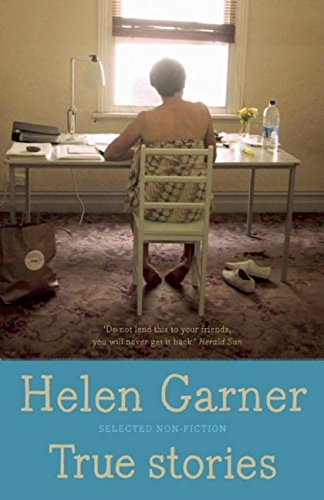

Her old friend Helen, having offered her a spare room, finds herself required to provide much more: round-the-clock nursing care, total sacrifice of social and work commitments, and, worst of all, enforced collusion in Nicola's faith in a miracle cure. Some Australian critics have loftily argued that Garner never wrote novels anyway, only thinly disguised memoirs.Įven so, the elusive "winking light" of fiction kept beckoning, and now, 15 years after her last novella, Cosmo Cosmolino, comes The Spare Room, a story of a friendship tested beyond endurance when Nicola, a gushy bohemian with end-stage cancer, flies to Melbourne for a three-week programme of quack treatments. As if to prove it, her 2001 essay collection, The Feel of Steel, published in the same year as Andrew Marr's notorious "Death of the Novel" polemic, was more alive and sparky than the average Booker winner. Following the breakup of her marriage to the novelist Murray Bail in the 1990s, she seemed to join the ranks of those who declared fiction a dead end. Nagged by a feeling of being "a failure because I didn't do massive great novels about Australia or the outback or something", she has produced a large amount of journalism (labelled as such, but sculpted like fiction) and a smaller oeuvre of short stories and novellas that seek to compress and alchemise the stuff of her life.

Garner's relationship with fiction has always been a troubled one. Friends and acquaintances soon learned that anything they did or said was liable to end up in print, although the fine quality of Garner's books - and their status as contemporary classics - may have softened the hurt. Her debut novel, Monkey Grip (1977), won her instant literary fame, as well as fuelling the perpetual debate about the boundaries between biography and fiction: the book arose from the copious notes she kept while living in a shared household. Her first career, as a teacher, ended in 1972 when she was fired for discussing sexual matters with schoolchildren, and, ever since, she's had a reputation for overstepping the line. "I learned to wash her arse," says our narrator about her incontinent, cancer-ridden friend, "as gently as I had washed my sister's and my mother's, and as some day someone will have to wash mine." This remark - so very un-British in its tone - is less startling in an Australian context but, even in her home country, Helen Garner is known for her frankness, her distinctive blend of tender affection and brutal truth-telling.


 0 kommentar(er)
0 kommentar(er)
